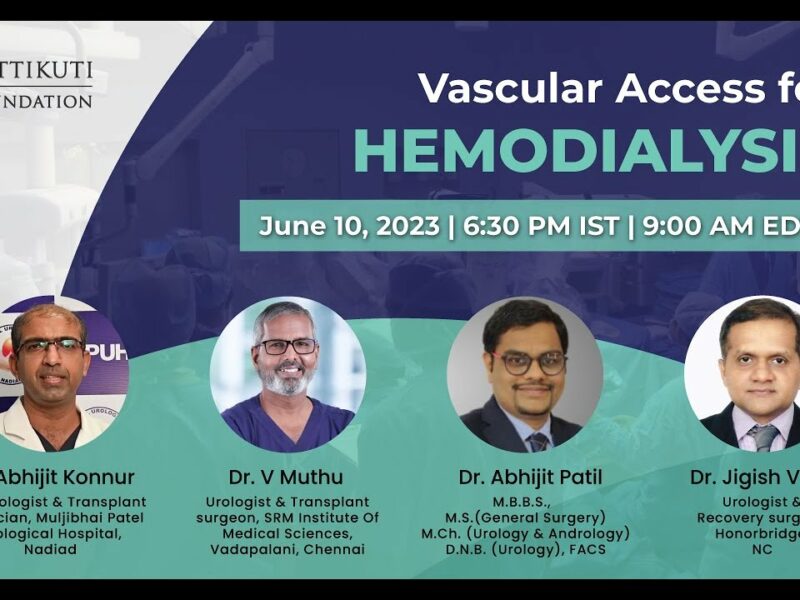Robotic Radical Prostatectomy in Kidney Transplant Recipient: Challenges and Technical Caveats
KS Award Abstract:
Title: Robotic Radical Prostatectomy in Kidney Transplant Recipient: Challenges and Technical caveats
Author/ Presenting Author: Varun Mittal
Place of Work/Institute: Title / Position: Kidney and Urology Institute, Medanta, The Medicity, Gurgaon / Consultant Urology, Robotics and Kidney Transplant,
Abstract
Introduction: Performing radical prostatectomy in a kidney transplant recipient could be more challenging procedure due to presence of graft in iliac fossa. This video demonstrates technical caveats of robotic-assisted radical prostatectomy (RARP) in renal transplant recipients and potential surgical modifications to achieve successful outcome.
Material and methods: A 61 year old man presented with Gleason 4+4 localized adenocarcinoma prostate with PSA of 15.3 ng/ml and history of live renal allograft transplant in right iliac fossa in 2013, with present creatinine levels of 3.00 mg%. Preoperative detailed anatomy of transplant kidney and ureter and local staging of prostate cancer was studied with non contrast magnetic resonance imaging and revealed PIRADS 4 lesion involving mainly right lobe of prostate with normal seminal vesicles. Modifications to our surgical approach included surface marking of graft kidney, initial diagnostic laparoscopy via 5 mm port at palmers point, modified port placement with superomedial placement of right lateral 12 mm assistant port, and developing retropubic space largely from the contralateral side and avoiding pelvic lymphadenectomy on side of allograft.
Results: Total console and operative times were 132 and 160 minutes respectively. Estimated blood loss was 100 ml. Perioperative clinical course was uneventful. Renal functions remained stable with creatinine levels of 2.9 at the time of discharge. Final histopathology was Adenocarcinoma Prostate, Gleason Score 4+3 with unifocal positive margin at right apex. All lymph nodes were negative for malignancy, pT2c No Mx. Total PSA at 3 months is 0.01 ng/ml.
Conclusion: RARP in renal transplant recipients is feasible and safe. Few modifications to standard technique are required in these patients to achieve comparable outcomes.
Recorded video program originally a Finalist for the KS Robotic Surgery Video Awards, Robotic Surgeons Council of India. Well-narrated, featuring PPT’s, X-rays, MRI’s, photos and robotic surgery videos, 07:28
Date
August 15, 2020




